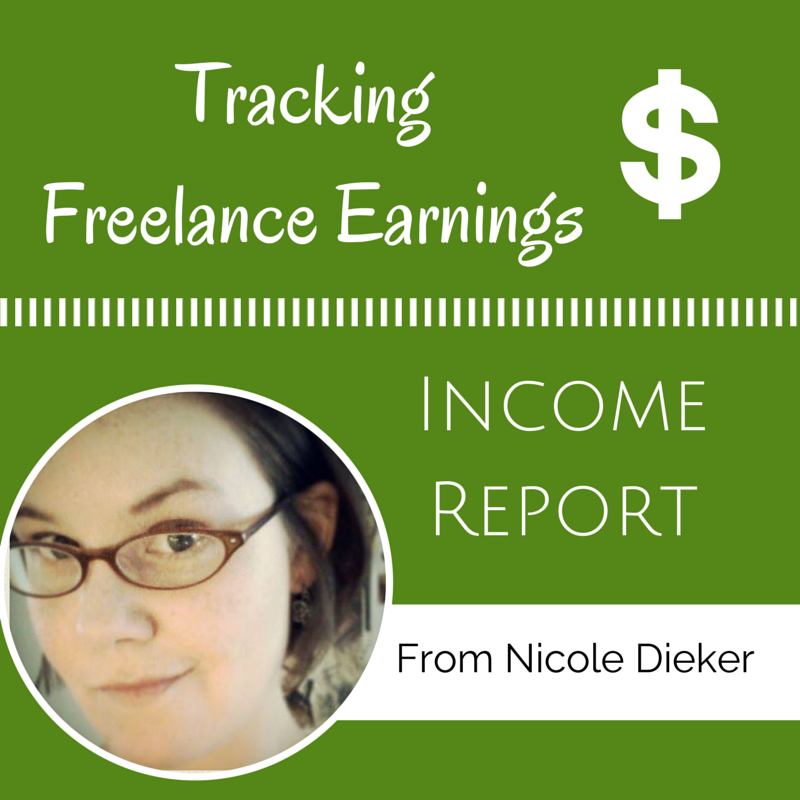Do you have a plan for what you’ll do when your next big project ends? Doing a little bit of advance work in preparation for a project’s end or a client’s departure will help ensure that losing a gig doesn’t also mean losing money.
I closed out a big project this month — one that provided almost 25 percent of my monthly income. Because I had planned ahead, I was able to ride out the income drop and secure new work to take the project’s place.
Before we get into that, here are September’s numbers:
Completed Pieces: 71
Work Billed: $6,983.35
Earnings Received: $6,137.81
I wrote a little over 50,000 words in September, with an average per-piece earning of $98.36. My highest earning piece was $1,002, and my lowest earning piece was $35.
I really, really wanted to beat $7,000 this month. I kept hoping I could fit in one more piece to push me over the $7K mark, but it didn’t happen.
Planning for a project’s end
This month, I wrote the last column in my Ask A Freelancer series. I delivered weekly freelancing advice at The Freelancer for just over a year, and the project brought in just under 25 percent of my monthly income.
I began preparing for the end of Ask A Freelancer in July. So far, all of the columns I’ve written have lasted for about a year, and although my editors had not yet said anything about Ask A Freelancer ending, I suspected it would close out sometime in its second year. That meant I needed a plan to keep from losing 25 percent of my income overnight.
I could have structured the plan as “find one new big client who is willing to pay me an equivalent amount,” but that seemed difficult and overwhelming.
Instead, I thought of it this way: If Ask A Freelancer ends, I will need to write one new piece every week. (One piece that pays roughly what I would have earned for Ask A Freelancer, of course.)
Next, I made a list of all the clients I could contact and ask for one new piece. As soon as my editors and I started talking about closing out Ask A Freelancer, I began to reach out to my list of clients to ask them for additional work. Some of the clients said no, but enough said yes that I was able to fill in the income gap.
I also received a few new job offers after we formally announced the end of Ask A Freelancer. It was pretty clear that some editors saw, “This is the last Ask A Freelancer column” and thought, “I wonder if Nicole has more time available to write for us?”
On a related note: Look forward to my new column, Pitch Fix, coming to The Write Life this month.
It was also a good time for me to start pitching new clients, and I chose to focus on major magazines. I’ve done print magazine work before, but getting my byline in a popular, recognized publication would be a significant step up in my career. I’ll let you know what happens.
Thinking ahead to 2016
We are officially in the last quarter of 2015, which means I’m doing a lot of thinking about next year.
Nobody can predict the future, but here’s what I anticipate will happen in 2016:
1. This November, I’ll begin to reach out to my current clients and ask about the possibility of renegotiating rates. Some clients will be open to a rate increase, and some will tell me it isn’t in their budget. Still, it’s important to ask — and it will help me bring in a little more money for 2016.
2. At some point, probably before the summer, I might end up losing a client. This’ll be due to budget adjustments or — worst-case scenario — a publication shutting down. I need to start preparing for another 25 percent income drop, because it will happen eventually.
3. Also likely before the summer, I’ll land my next big client. Either the client will reach out to me directly, I’ll cold-pitch the client, or I’ll ask one of my current clients to refer me.
I’ll need to work on pitching and asking for referrals, because I can’t sit around waiting to be asked.
4. My novel The Biographies of Ordinary People will continue to gain readers and subscribers via Patreon. Right now my subscribers are growing slowly but steadily; if I want more rapid growth, I’ll have to figure out how to promote my novel.
So far my best promotion strategy is social media, and at this point my social network is well aware of the project. I need to think of additional ways to share this project with people, such as writing guest posts for other writing sites.
5. Now that I’m earning enough to save 10 percent of my income, I also need to start thinking about long-term investments. Do I fund an IRA, a Roth IRA or a SEP IRA? It might be worth talking to my CPA or another financial advisor.
One thing’s for sure: I’m still going to be discussing money and freelancing with as many people as possible, because sharing this information helps us all get smarter about our own businesses.
Do you have a plan for what you’ll do if one of your big projects comes to an end? What do you predict will happen to your freelancing career in 2016?







